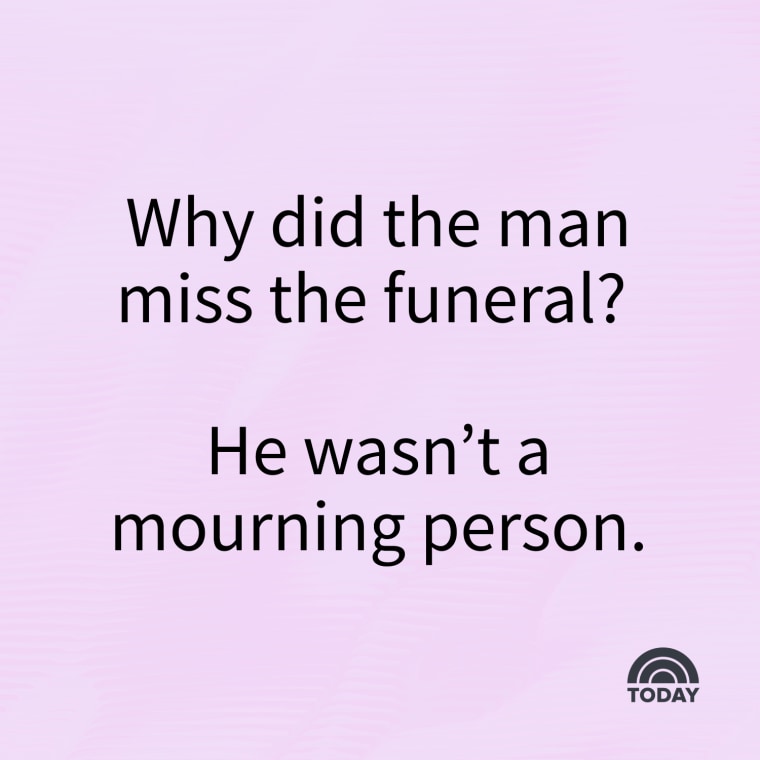Black jokes and dark humor have long been a controversial yet intriguing aspect of comedy. They push boundaries, challenge societal norms, and often spark intense discussions about what is considered acceptable in humor. While some view them as a way to confront uncomfortable truths, others see them as offensive or inappropriate. Understanding the nuances of black jokes and dark humor requires delving into their history, cultural impact, and psychological effects.
Humor has always been a powerful tool for human expression, but not all forms of humor are universally accepted. Black jokes, in particular, tread a fine line between provoking laughter and sparking outrage. As we explore this topic, it’s essential to approach it with an open mind and a willingness to understand why people find humor in the darkest of places.
Throughout this article, we’ll examine the origins of black jokes, their role in modern society, and the ethical considerations surrounding their use. Whether you’re a fan of dark humor or simply curious about its impact, this guide will provide valuable insights into this complex and often misunderstood form of comedy.
Read also:Download Rulz S A Complete Guide To Mastering The Tool
Table of Contents
- The Origin of Black Jokes and Dark Humor
- Psychological Effects of Dark Humor
- Cultural Impact of Black Jokes
- Ethical Considerations in Using Dark Humor
- Examples of Black Jokes and Dark Humor
- Dark Humor in Media
- Benefits of Dark Humor
- Risks and Drawbacks of Black Jokes
- Popularity of Dark Humor Across Cultures
- The Future of Black Jokes and Dark Humor
The Origin of Black Jokes and Dark Humor
Dark humor, often referred to as black jokes, has its roots deeply embedded in human history. From ancient civilizations to modern times, people have used humor as a coping mechanism for tragedy and hardship. The term "dark humor" itself emerged in the 20th century, but the concept dates back much further.
In ancient Greece, playwrights like Aristophanes incorporated elements of dark humor into their comedies, addressing topics such as war and death. Similarly, during the Middle Ages, jesters and troubadours often used humor to lighten the mood in times of plague or famine. These early forms of dark humor served as a way to confront the harsh realities of life while maintaining a sense of resilience.
Evolution of Black Jokes
Over time, black jokes evolved alongside societal changes. In the 19th and 20th centuries, dark humor became more prevalent in literature and theater, with authors like Mark Twain and playwrights like Samuel Beckett using it to critique societal norms and human nature. The rise of comedy clubs in the mid-20th century further popularized dark humor, allowing comedians to push boundaries and explore taboo subjects.
Psychological Effects of Dark Humor
Dark humor has a profound impact on the human psyche. Research has shown that individuals who appreciate dark humor tend to have higher levels of intelligence and emotional resilience. This type of humor requires a certain level of cognitive processing, as it often involves irony, sarcasm, and absurdity.
However, the psychological effects of dark humor can vary depending on individual personality traits. Some people may find it cathartic, using it as a way to process trauma or grief, while others may feel uncomfortable or offended by its content.
Impact on Mental Health
- Studies suggest that dark humor can reduce stress and anxiety by providing a sense of control over difficult situations.
- It may also foster a sense of community among those who share similar perspectives on life’s challenges.
- Conversely, excessive exposure to dark humor could desensitize individuals to real-world issues, leading to a lack of empathy.
Cultural Impact of Black Jokes
Black jokes and dark humor are not universally accepted across cultures. What may be considered funny in one society could be deeply offensive in another. Cultural norms, values, and historical contexts play a significant role in shaping perceptions of dark humor.
Read also:Remembering Paul Hebert The Wicked Tuna Stars Legacy And Obituary
In Western cultures, dark humor is often embraced as a form of free expression, with comedians using it to challenge authority and question societal norms. In contrast, many Eastern cultures prioritize harmony and respect, making dark humor less prevalent and potentially more controversial.
Global Perspectives on Dark Humor
Understanding the cultural impact of black jokes requires examining how different societies approach humor. For instance:
- In the United States, dark humor is often seen as a way to address political and social issues.
- In Japan, humor tends to focus on politeness and indirectness, making dark jokes less common.
- In the United Kingdom, dark humor is widely accepted, with British comedians frequently incorporating it into their routines.
Ethical Considerations in Using Dark Humor
While dark humor can be a powerful tool for social commentary, it also raises important ethical questions. When does humor cross the line into offense? How can comedians and content creators ensure they are not perpetuating harmful stereotypes or contributing to societal divisions?
Comedians and writers must be mindful of their audience and the potential impact of their words. Balancing the need for creative expression with the responsibility to respect others is a delicate but necessary task.
Guidelines for Ethical Dark Humor
- Avoid targeting marginalized groups solely for comedic effect.
- Ensure that the humor serves a purpose beyond mere shock value.
- Be prepared to engage in constructive dialogue with those who may feel offended.
Examples of Black Jokes and Dark Humor
To better understand black jokes and dark humor, let’s explore some examples. These jokes often deal with sensitive topics such as death, illness, and tragedy, using irony and absurdity to create laughter.
Example 1: "I told my doctor I broke my arm in two places. He told me to stop going to those places." This joke uses absurdity to lighten the mood around a painful subject.
Example 2: "Why don’t graveyards ever get overcrowded? Because people are dying to get in." This play on words addresses mortality in a humorous yet respectful way.
Contemporary Dark Humor
In recent years, dark humor has found its way into popular culture through TV shows, movies, and online platforms. Shows like "BoJack Horseman" and "Rick and Morty" frequently incorporate dark humor to explore complex themes and challenge viewer expectations.
Dark Humor in Media
Media plays a crucial role in shaping public perceptions of dark humor. From stand-up comedy specials to viral videos on social media, dark humor continues to evolve and adapt to new formats. Comedians and content creators must navigate the ever-changing landscape of media ethics while striving to entertain and provoke thought.
Platforms like YouTube and TikTok have democratized access to dark humor, allowing creators to share their work with global audiences. However, this also means increased scrutiny and accountability, as content can quickly go viral and spark widespread debate.
Benefits of Dark Humor
Despite its controversial nature, dark humor offers several benefits. It can foster resilience, promote critical thinking, and provide a unique perspective on life’s challenges. By embracing dark humor, individuals may develop a deeper understanding of themselves and the world around them.
Additionally, dark humor can serve as a bridge between cultures, encouraging dialogue and empathy. When used thoughtfully, it has the power to unite people through shared experiences and laughter.
Building Resilience Through Humor
Research indicates that individuals who engage with dark humor often exhibit greater emotional resilience. This is because they are able to reframe difficult situations in a way that reduces their emotional impact. By finding humor in adversity, they cultivate a sense of control and empowerment.
Risks and Drawbacks of Black Jokes
While dark humor has its advantages, it also comes with risks. Improper use of black jokes can lead to offense, alienation, and even harm. Comedians and content creators must be aware of these potential pitfalls and take steps to mitigate them.
Additionally, excessive exposure to dark humor may desensitize individuals to real-world issues, making them less empathetic or compassionate. It’s important to strike a balance between using humor as a tool for coping and avoiding its potential negative effects.
Avoiding Harmful Stereotypes
One of the biggest risks associated with dark humor is perpetuating harmful stereotypes. Comedians must be vigilant in ensuring their jokes do not reinforce negative biases or contribute to systemic inequalities. This requires a deep understanding of the subject matter and a commitment to responsible storytelling.
Popularity of Dark Humor Across Cultures
The popularity of dark humor varies significantly across cultures. In some societies, it is celebrated as a form of intellectual humor, while in others, it is viewed with suspicion or outright rejection. Understanding these cultural differences is key to appreciating the global impact of black jokes.
For example, in countries with a strong tradition of satire, dark humor is often seen as a form of political resistance. In contrast, more conservative societies may view it as disrespectful or inappropriate. These cultural nuances highlight the importance of context in interpreting and appreciating dark humor.
Cultural Norms and Dark Humor
Cultural norms play a significant role in shaping attitudes toward dark humor. In societies that value individual expression, dark humor is often embraced as a form of creative freedom. In more collectivist cultures, humor that challenges societal norms may be met with resistance or criticism.
The Future of Black Jokes and Dark Humor
As society continues to evolve, so too will the role of black jokes and dark humor. Advances in technology, changes in cultural norms, and shifting political landscapes will all influence how humor is created, shared, and consumed. Comedians and content creators must remain adaptable, embracing new opportunities while staying true to their artistic vision.
Looking ahead, the future of dark humor may involve greater collaboration between creators from diverse backgrounds, fostering a more inclusive and nuanced approach to comedy. By embracing the complexities of human experience, dark humor has the potential to continue inspiring thought, sparking dialogue, and bringing people together through laughter.
Kesimpulan
Black jokes and dark humor represent a fascinating intersection of psychology, culture, and ethics. While they challenge societal norms and provoke intense reactions, they also offer valuable insights into the human condition. By understanding their origins, impact, and ethical considerations, we can appreciate the role they play in shaping modern comedy.
We invite you to share your thoughts on this topic in the comments section below. Do you enjoy dark humor, or do you find it offensive? How do you think it will evolve in the future? Don’t forget to explore other articles on our site for more insights into the world of comedy and beyond!

